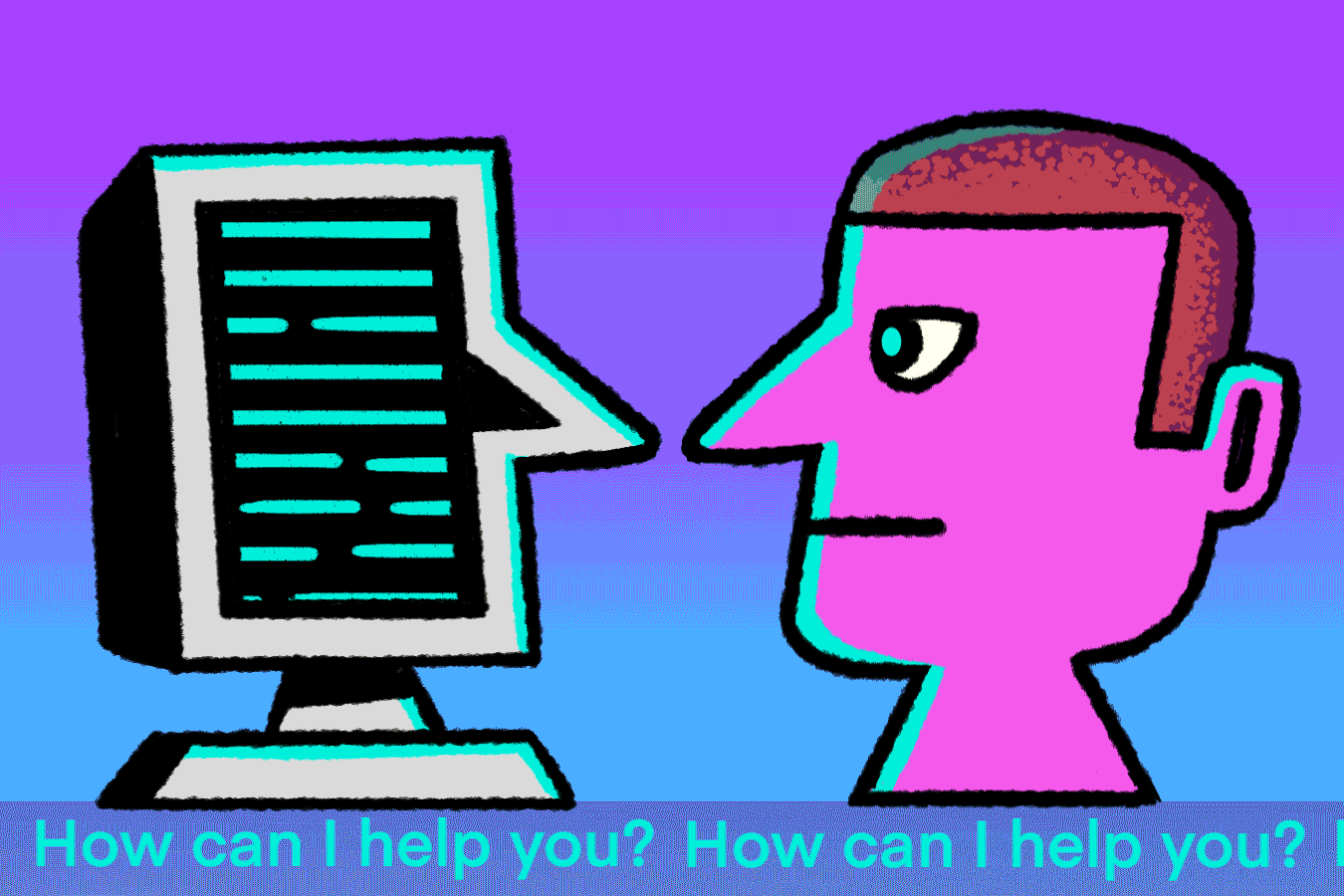Socrates wasn’t the best fan of the written phrase. Well-known for leaving no texts to posterity, the good thinker is alleged to have believed {that a} reliance on writing destroys the reminiscence and weakens the thoughts.
Some 2400 years later, Socrates’s fears appear misplaced – significantly in gentle of proof that writing issues down improves reminiscence formation. However his broader distrust of cognitive applied sciences lives on. A rising variety of psychologists, neuroscientists and philosophers fear that ChatGPT and comparable generative AI instruments will chip away at our powers of data recall and blunt our capability for clear reasoning.
What’s extra, whereas Socrates relied on intelligent rhetoric to make his argument, these researchers are grounding theirs in empirical knowledge. Their research have uncovered proof that even skilled professionals disengage their essential pondering expertise when utilizing generative AI, and revealed that an over-reliance on these AI instruments throughout the studying course of reduces mind connectivity and renders info much less memorable. Little surprise, then, that once I requested Google’s Gemini chatbot whether or not AI instruments are turning our brains to jelly and our recollections to sieves, it admitted they may be. At the least, I believe it did: I can’t fairly bear in mind now.
However all shouldn’t be misplaced. Many researchers suspect we will flip the narrative, turning generative AI right into a device that improves our cognitive efficiency and augments our intelligence. “AI shouldn’t be essentially making us silly, however we could also be interacting with it stupidly,” says Lauren Richmond at Stony Brook College, New York. So, the place are we going incorrect with generative AI instruments? And the way can we modify our habits to make higher use of the know-how?
The generative AI age
Lately, generative AI has grow to be deeply embedded in our lives. Therapists use it to search for patterns of their notes. College students depend on it for essay writing. It has even been welcomed by some media organisations, which can be why monetary information web site Enterprise Insider reportedly now permits its journalists to make use of AI when drafting tales.
In a single sense, all of those AI customers are following a millennia-old custom of “cognitive offloading” – utilizing a device or bodily motion to cut back psychological burden. Many people use this technique in our every day lives. Each time we write a purchasing record as a substitute of memorising which objects to purchase, we’re using cognitive offloading.
Used on this approach, cognitive offloading may also help us enhance our accuracy and effectivity, whereas concurrently releasing up mind house to deal with extra advanced cognitive duties reminiscent of problem-solving, says Richmond. However in a evaluation of the behaviour that Richmond revealed earlier this 12 months along with her Stony Brook colleague Ryan Taylor, she discovered it has unfavorable results on our cognition too.
“If you’ve offloaded one thing, you nearly form of mentally delete it,” says Richmond. “Think about you make that grocery record, however you then don’t take it with you. You’re really worse off than should you simply deliberate on remembering the objects that you simply wanted to purchase on the retailer.”
Analysis backs this up. To take one instance, a examine revealed in 2018 revealed that once we take pictures of objects we see throughout a go to to a museum, we’re worse at remembering what was on show afterwards: we have now subconsciously given our telephones the duty of memorising the objects on present.
This could create a spiral whereby the extra we offload, the much less we use our brains, which in flip makes us offload much more. “Offloading begets offloading – it might occur,” says Andy Clark, a thinker on the College of Sussex, UK. In 1998, Clark and his colleague David Chalmers – now at New York College – proposed the prolonged thoughts thesis, which argues that our minds prolong into the bodily world by way of objects reminiscent of purchasing lists and picture albums. Clark doesn’t view that as inherently good or unhealthy – though he’s involved that as we prolong into our on-line world with generative AI and different on-line providers, we’re making ourselves weak if these providers ever grow to be unavailable due to energy cuts or cyberattacks.
Cognitive offloading might additionally make our reminiscence extra weak to manipulation. In a 2019 examine, researchers on the College of Waterloo, Canada, introduced volunteers with a listing of phrases to memorise and allowed them to kind out the phrases to assist bear in mind them. The researchers discovered that once they surreptitiously added a rogue phrase to the typed record, the volunteers have been extremely assured that the rogue phrase had really been on the record all alongside.

We cognitively offload each time we write a purchasing record
Mikhail Rudenko/Alamy
As we have now seen, issues concerning the harms of cognitive offloading return not less than so far as Socrates. However generative AI has supercharged them. In a examine posted on-line this 12 months, Shiri Melumad and Jin Ho Yun on the College of Pennsylvania requested 1100 volunteers to write down a brief essay providing recommendation on planting a vegetable backyard after researching the subject both utilizing a regular net search or ChatGPT. The ensuing essays tended to be shorter and contained fewer references to info in the event that they have been written by volunteers who used ChatGPT, which the researchers interpreted as proof that the AI device had made the training course of extra passive – and the ensuing understanding extra superficial. Melumad and Yun argued that it is because the AIs synthesise info for us. In different phrases, we cognitively offload our alternative to discover and make discoveries a few topic for ourselves.
Sliding capacities
The most recent neuroscience is including weight to those fears. In experiments detailed in a paper pending peer evaluation which was launched this summer time, Nataliya Kos’myna on the Massachusetts Institute of Know-how and her colleagues used EEG head caps to measure the mind exercise of 54 volunteers as they wrote essays on topics reminiscent of “Does true loyalty require unconditional help?” and “Is having too many decisions an issue?”. A few of the members wrote their essays utilizing simply their very own information and expertise, these in a second group have been allowed to make use of the Google search engine to discover the essay topic, and a 3rd group might use ChatGPT.
The group found that the group utilizing ChatGPT had decrease mind connectivity throughout the job, whereas the group relying merely on their very own information had the very best. The browser group, in the meantime, was someplace in between.
“There may be undoubtedly a hazard of moving into the consolation of this device that may do nearly every little thing. And that may have a cognitive value,” says Kos’myna.
Critics might argue {that a} discount in mind exercise needn’t point out an absence of cognitive involvement in an exercise, which Kos’myna accepts. “However it’s also necessary to take a look at behavioural measures,” she says. For instance, when quizzing the volunteers later, she and her colleagues found that the ChatGPT customers discovered it more durable to cite their essays, suggesting they hadn’t been as invested within the writing course of.
There may be additionally rising – if tentative – proof of a hyperlink between heavy generative AI use and poorer essential pondering. As an illustration, Michael Gerlich on the SBS Swiss Enterprise College revealed a examine earlier this 12 months assessing the AI habits and significant pondering expertise of 666 folks from numerous backgrounds.
Gerlich used structured questionnaires and in-depth interviews to quantify the members’ essential pondering expertise, which revealed that these aged between 17 and 25 had essential pondering scores that have been roughly 45 per cent decrease than members who have been over 46 years previous.

We bear in mind much less of what we see once we use our cameras
Grzegorz Czapski/Alamy
“These [younger] folks additionally reported that they rely increasingly more on AI,” says Gerlich: they have been between 40 and 45 per cent extra more likely to say they relied on AI instruments than older members. Together, Gerlich thinks the 2 findings trace that over-reliance on AI reduces essential pondering expertise.
Others stress that it’s too early to attract any agency conclusions, significantly since Gerlich’s examine confirmed correlation relatively than causation – and on condition that some analysis suggests essential pondering expertise are inherently underdeveloped in adolescents. “We don’t have the proof but,” says Aaron French at Kennesaw State College in Georgia.
However different analysis suggests the hyperlink between generative AI instruments and significant pondering could also be actual. In a examine revealed earlier this 12 months by a group at Microsoft and Carnegie Mellon College in Pennsylvania, 319 “information staff” (scientists, software program builders, managers and consultants) have been requested about their experiences with generative AI. The researchers discovered that individuals who expressed greater confidence within the know-how freely admitted to participating in much less essential pondering whereas utilizing it. This matches with Gerlich’s suspicion that an over-reliance on AI instruments instils a level of “cognitive laziness” in folks.
Maybe most worrying of all is that generative AI instruments might even affect the behaviour of people that don’t use the instruments closely. In a examine revealed earlier this 12 months, Zachary Wojtowicz and Simon DeDeo – who have been each at Carnegie Mellon College on the time, although Wojtowicz has since moved to MIT – argued that we have now realized to worth the hassle that goes into sure behaviours, like crafting a considerate and honest apology in an effort to restore social relationships. If we will’t escape the suspicion that somebody has offloaded these cognitively tough duties onto an AI – having the know-how draft an apology on their behalf, say – we could also be much less inclined to imagine that they’re being real.
Utilizing instruments intelligently
One option to keep away from all of those issues is to reset our relationship with generative AI instruments, utilizing them in a approach that enhances relatively than undermines cognitive engagement. That isn’t as straightforward because it sounds. In a brand new examine, Gerlich discovered that even volunteers who pleasure themselves on their essential pondering expertise generally tend to slip into lazy cognitive habits when utilizing generative AI instruments. “As quickly as they have been utilizing generative AI with out steerage, most of them straight offloaded,” says Gerlich.
When there’s steerage, nonetheless, it’s a completely different story. Supplemental work by Kos’myna and her colleagues offers a very good instance. They requested the volunteers who had written an essay utilizing solely their very own information to work on a second model of the identical essay, this time utilizing ChatGPT to assist them. The EEG knowledge confirmed that these volunteers maintained excessive mind connectivity whilst they used the AI device.

Jotting down notes leaves us weak to reminiscence manipulation
Kyle Glenn/Unsplash
Clark argues that that is necessary. “If folks take into consideration [a given subject] on their very own earlier than utilizing AI, it makes an enormous distinction to the curiosity, originality and construction of their subsequent essays,” he says.
French sees the profit on this strategy too. In a paper he revealed final 12 months together with his colleague, the late J.P. Shim, he argued that the precise approach to consider generative AI is as a device to reinforce your current understanding of a given topic. The incorrect approach, in the meantime, is to view the device as a handy shortcut that replaces the necessity so that you can develop or keep any understanding.
So what are the secrets and techniques to utilizing AI the precise approach? Clark suggests we must always start by being a bit much less trusting: “Deal with it like a colleague that generally has nice concepts, however generally is totally off the rails,” he says. He additionally believes that the extra pondering you do earlier than utilizing a generative AI device, the higher what he dubs your “hybrid cognition” shall be.
That being mentioned, Clark says there are occasions when it’s “secure” to be a bit cognitively lazy. If you’ll want to deliver collectively a variety of publicly out there info, you’ll be able to in all probability belief an AI to do this, though it’s best to nonetheless double-check its outcomes.
Gerlich agrees there are good methods to make use of AI. He says it is very important pay attention to the “anchoring impact” – a cognitive bias that makes us rely closely on the primary piece of data we get when making choices. “The knowledge you first obtain has a huge effect in your ideas,” he says. Which means that even should you assume you’re utilizing AI in the precise approach – critically evaluating the solutions it produces for you – you’re nonetheless more likely to be guided by what the AI advised you within the first place, which may function an impediment to actually authentic pondering.
However there are methods you should utilize to keep away from this downside too, says Gerlich. If you’re writing an essay concerning the French Revolution’s unfavorable impacts on society, don’t ask the AI for examples of these unfavorable penalties. “Ask it to inform you info concerning the French Revolution and different revolutions. Then search for the negatives and make your personal interpretation,” he says. A closing stage would possibly contain sharing your interpretation with the AI and asking it to determine any gaps in your understanding, or to counsel what a counter-argument would possibly seem like.
This can be simpler or more durable relying on who you’re. To make use of AI most fruitfully, it’s best to know your strengths and weaknesses. For instance, in case you are experiencing cognitive decline, then offloading might provide advantages, says Richmond. Character might additionally play a job. Should you get pleasure from pondering, it’s a good suggestion to make use of AI to problem your understanding of a topic as a substitute of asking it to spoon-feed you info.
A few of this recommendation might look like widespread sense. However Clark says it will be important that as many individuals as doable comprehend it for a easy purpose: if extra of us use generative AI in a thought of approach, we may very well assist to maintain these instruments sharp.
If we anticipate generative AI to supply us with all of the solutions, he says, then we’ll find yourself producing much less authentic content material ourselves. Finally, because of this the big language fashions (LLMs) that energy these instruments – that are skilled utilizing human-generated knowledge – will begin to decline in capability. “You start to get the hazard of what some folks name mannequin collapse,” he says: the LLMs are compelled into suggestions loops the place they’re skilled on their very own content material, and their means to supply inventive, high-quality solutions deteriorates. “We’ve acquired an actual vested curiosity in ensuring that we proceed to write down new and attention-grabbing issues,” says Clark.
In different phrases, the inaccurate use of generative AI may be a two-way road. Rising analysis suggests there’s some substance to the fears that AI is making us silly – however it’s also doable that the observe of overusing it’s making AI instruments silly, too.
Matters:

